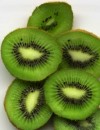 Could the claims of the “organic” farming movement be true after all? According to an international team who have analysed the antioxidant, mineral, and nitrate composition of kiwifruit, yes. Their findings published in the Journal of the Science of Food and Agriculture would suggest that growing the fuzzy green fruit using so-called organic principles leads to a higher content of health-promoting factors than those grown using conventional methods.
Could the claims of the “organic” farming movement be true after all? According to an international team who have analysed the antioxidant, mineral, and nitrate composition of kiwifruit, yes. Their findings published in the Journal of the Science of Food and Agriculture would suggest that growing the fuzzy green fruit using so-called organic principles leads to a higher content of health-promoting factors than those grown using conventional methods.
I asked team leader Adel Kader of the University of California, Davis, about his reasoning. “Most differences in composition between conventionally grown and organically grown fruits depend on differences in inputs,” he told us. These inputs include differences in fertilizers added and so results vary considerably from one study to the next, “In our kiwifruit study, the grower added more fertilizers to the organic kiwifruit plants than to the conventional ones and that is the reason for the higher mineral contents of the organic fruits,” he adds, “The one exception is phenolic [antioxidant] content, which has been shown in our study and in several other studies on a range of crops to be higher in organic than in conventional fruits.”
Kader believes that the difference is most likely due to the fruit having to survive against pests in the absence of synthetic pesticides. “Conventional agriculture practices utilize levels of pesticides that can result in a disruption of phenolic metabolites in the plant,” he says, “which have a protective role in plant defense mechanisms.” His hunch is further corroborated by the organic kiwifruit having thicker skins as well as the higher antioxidant activity which is thought to be a natural by-product of stress. He has a simple piece of advice for those dithering over whether to tuck into the fuzzy fruit: “My advice is that people eat more fruits regardless of whether they are conventionally or organically produced,” he told Sciencebase. More on this story in SpectroscopyNOW this week.